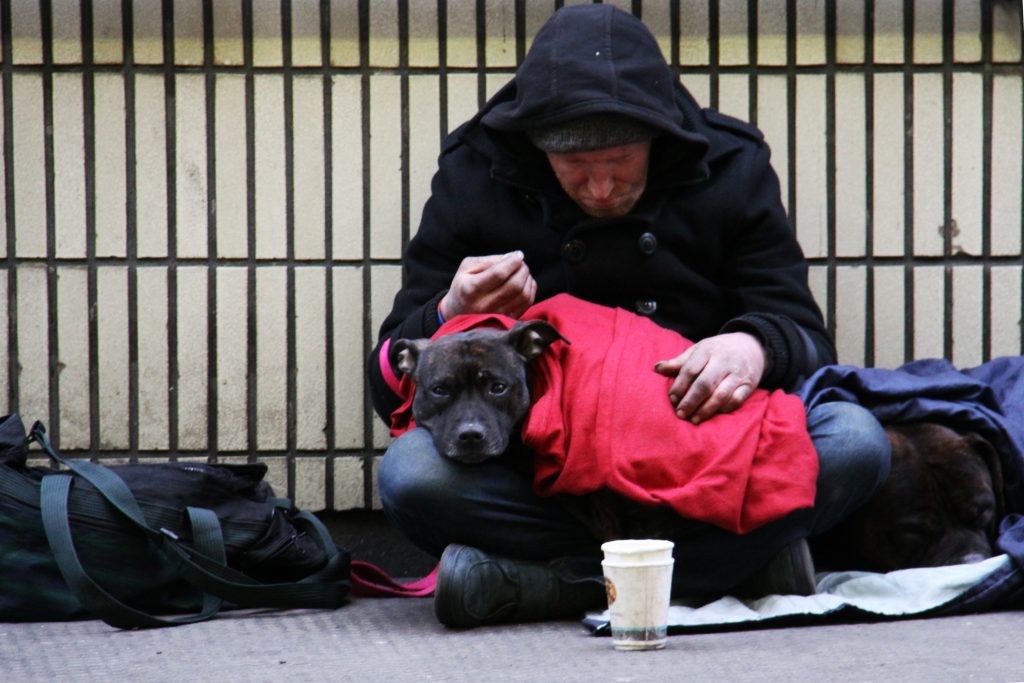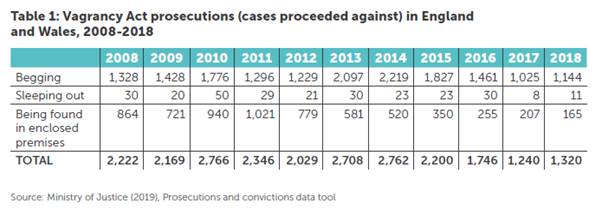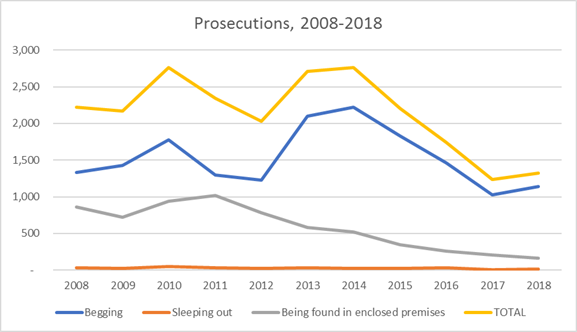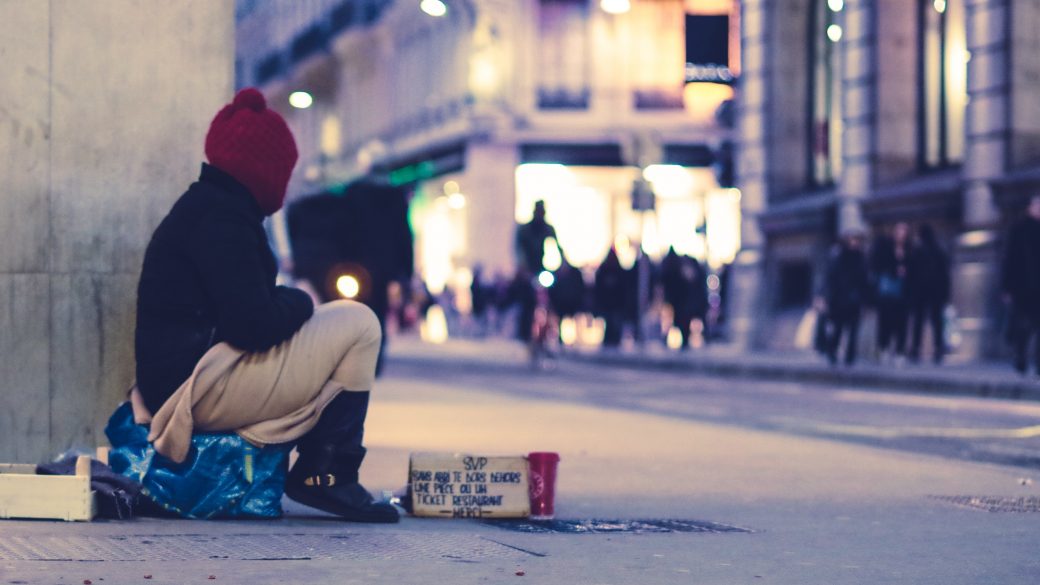Cross-party politicians, chiefs of police and charities are urging the UK Government to scrap the centuries-old Vagrancy Act, which they say criminalises homelessness and needlessly pushes vulnerable people into further hardships.
Homelessness charity Crisis is leading the campaign, releasing a new legal review of the Act, currently still in effect in England and Wales.
The calls come as the Government is set to announce its own review as part of its rough sleeping strategy today.
“The continued practice of criminalising homeless people under the Vagrancy Act is a disgrace,” Jon Sparkes, Chief Executive of Crisis, said.
“There are real solutions to resolving people’s homelessness – arrest and prosecution are not among them.
“Of course, police and councils must be able to respond to the concerns of local residents in cases of genuine anti-social activity, but we need to see an approach that allows vulnerable people access to the vital services they need to move away from the streets for good.
“The Government has pledged to review the Vagrancy Act as part of its rough sleeping strategy, but it must go further. The Act may have been fit for purpose 200 years ago, but it now represents everything that’s wrong with how homeless and vulnerable people are treated. It must be scrapped.”
‘You Felt Like A Criminal’
“Arresting people for being homeless only made them stay homeless,” Karl, a former rough sleeper from Liverpool who is now permanently housed through Crisis, said.
“You felt like a criminal, so you end up shutting down and just relying on the homeless community instead. It becomes learned behaviour. I tried my best to stay out of sight.
 Image credit: Man and his dog/ Unsplash
Image credit: Man and his dog/ Unsplash
You felt like a criminal, so you end up shutting down and just relying on the homeless community instead.
Karl, a former rough sleeper from Liverpool
It would be brilliant if the Vagrancy Act could be repealed. That would help turn public opinion back to helping the homeless instead of punishing them.”
MPs Tracey Crouch (Con), Alex Cunningham (Lab), Layla Moran (Lib) and Liz Saville Roberts (Plaid) are all backing the campaign, as is former Met Commissioner Lord Hogan-Howe.
What Is The Vagrancy Act?
The Vagrancy Act 1824 was originally put into place to make it easier for police to clear the streets of destitute soldiers returning from the Napoleonic Wars.
It makes begging and rough sleeping illegal.
Almost 200 years later, it is still being used in England and Wales, despite protests from police forces, many of whom are reluctant to enforce it.
Scotland repealed the Vagrancy Act in 1982, instead enacting a number of anti-social behaviour laws.
The Crisis Report
Crisis obtained figures on how many people had been prosecuted under the Vagrancy Act in England and Wales over the past decade via a Freedom of Information request to the Ministry of Justice.
The data revealed that there were 1,320 prosecutions under the Act in 2018 – an increase of 6 per cent in the preceding year.

And it seems it is doing little to tackle rough sleeping itself, which has increased by 70 per cent between 2014 and 2018.
‘We Have A Duty To Help People Who Are Vulnerable’
As shown on the graph below, prosecution numbers over the time period have fluctuated.

Rough sleepers are, however, according to Crisis, frequently victims of informal use of the Vagrancy Act to move them on or challenge them without arresting or cautioning them.
This approach, Crisis added, is seldom accompanied by signposting individuals to services which may be able to help them. Instead, it increases the likelihood of individuals engaging in risky activities and seeking shelter in dangerous places.
“We joined the job to help people who are vulnerable to exploitation and abuse, and the homeless community are more likely to be victimised owing to their housing status than other members of our communities,” a chief inspector for an English police force, who wished to remain anonymous, said.
“We have a duty to protect them as vulnerable adults in our community. We are asked to consider how we prioritise our scant resources according to threat, risk and harm. But with begging, where’s the threat? Where’s the risk? Where’s the harm?”





